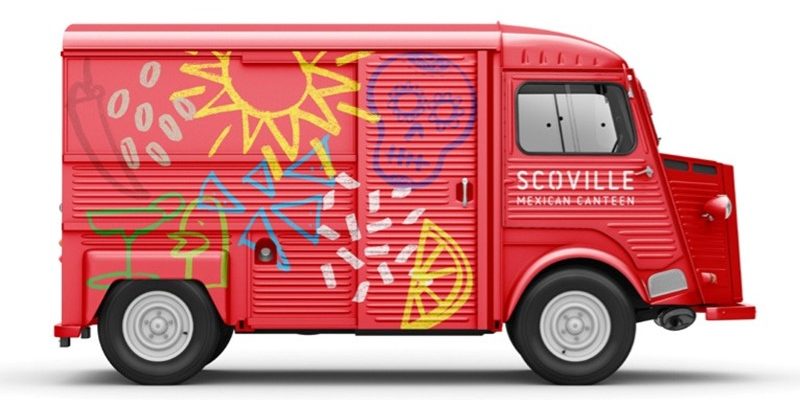The food truck industry has seen explosive growth in recent years, with more and more aspiring entrepreneurs jumping into this exciting and dynamic market, the allure of being your own boss, serving up delicious cuisine, and connecting with customers face to face is certainly compelling.
However, buying your first food truck is a significant investment and there are many considerations to keep in mind.
To help you on your journey, we’ve compiled 8 important steps you need to take before buying your first food truck.
Before We Start: Why Buying A Food Truck Can Be A Great Idea
Lower startup costs: Compared to a traditional restaurant, the initial investment for a food truck is much lower.
Lower operating costs: Food trucks have lower operating costs than restaurants because they don’t have the same overhead expenses, such as rent, utilities, and staff.
Flexibility and mobility: Food trucks are mobile, which means you can take your business anywhere, you can set up shop in high-traffic areas, at events, or even in different neighborhoods, this gives you the flexibility to reach a wider audience and test out different locations.
Easier to manage: Running a food truck is generally easier to manage than a restaurant, you don’t have to deal with the same staffing and inventory challenges as a restaurant.
Unique and exciting experience: buying your first food truck is a unique and exciting way to be your own boss and share your passion for food with the world.
Know More: 10 Questions To Ask Yourself Before You Start A Food Truck Business
8 Things To Do Before Buying Your First Food Truck
1. Assess Your Finances
Buying your first food truck is no small feat. It requires a sizable upfront investment, and you’ll need to factor in the cost of permits, licenses, insurance, branding and wrapping, equipment, inventory, and other startup expenses.
You’ll need to take the time to evaluate your financial situation, get quotes from food truck companies, and create a detailed budget.
2. Market Research
Thoroughly research the local food truck market in your area to understand the competitive landscape and identify potential opportunities.
2.1 Analyze the Number and Types of Existing Food Trucks
How to do it:
Start by conducting online research through social media, food truck directories, and local listings. Visit food truck gatherings or markets to observe and document the variety available. Additionally, consider reaching out to local food truck associations for more insights and statistics. Compile your findings to categorize the different cuisines and truck styles in your area.
2.2 Analyze Competitor Menus, Price Points, and Customer Reviews
How to do it:
To analyze competitor menus, price points, and customer reviews, start by researching local competitors and gathering their menus. Note the items offered and their pricing. Next, read customer reviews on platforms like Yelp or Google to identify common themes regarding quality, service, and value. Compile this data to compare your offerings and identify opportunities for improvement or differentiation.
2.3 Determine the Saturated vs. Underserved Cuisine Types
How to do it:
Start by analyzing market data and trends in your area. Identify which cuisines are widely available and popular (saturated) by checking local restaurants and consumer preferences. Next, look for gaps in the market by researching cuisines that are less represented or have limited offerings (underserved). Surveys, social media, and community feedback can provide insight into what people want but can’t easily find. This analysis will help you identify opportunities for new restaurant concepts or food businesses.
2.4 Determine Peak Service Times and Popular Locations
How to do it:
To determine peak service times and popular locations, visit the area during different times of the day and week. Observe foot traffic and customer activity levels. Take notes on busy periods and popular spots, and consider talking to staff for insights on when they experience the highest demand. This hands-on approach will give you a clear picture of service patterns.
2.5 Research Upcoming Events, Festivals, and Other Catering Opportunities
How to do it:
Start by checking local community calendars, social media platforms, and event websites. Join local business groups or forums to network and gather information. Additionally, subscribe to newsletters from event organizers and industry associations to stay updated on future events. Finally, consider reaching out directly to venues and planners to inquire about potential catering opportunities.
This market intelligence will help you determine if there’s room for your food truck concept to thrive, and inform key decisions like your menu, pricing, and ideal service locations.
3. Test Your Food Concept
Before fully committing, it’s wise to test your food concept. Participate in local events or host pop-ups to gather feedback from potential customers. This real-world testing phase allows you to refine your menu, adjust pricing, and hone your branding strategy based on customer responses.
4. Understand Local Regulations
Every city has its own set of rules governing food trucks, from where you can park to the health and safety regulations you must follow. Research these regulations extensively and ensure you’re compliant with all necessary permits and licenses.
Being well-versed in local requirements prevents costly fines and interruptions to your business.
5. Develop a Solid Business Plan
Creating a comprehensive business plan is crucial when buying your first food truck. This document should outline your concept, target market, operations, financial projections, marketing strategy, and growth plans.
A well-crafted business plan will not only help you think through all aspects of running a successful food truck, but it can also be a valuable tool when seeking financing or investors.
6. Build a Stellar Menu
Your menu is the soul of your food truck, making it crucial to invest thoughtful planning and consideration in its creation. Research food trends, analyze your competitors, and consider the preferences of your target customers to craft a menu that truly resonates.
Here are some additional tips:
– Aim to offer a focused, high-quality menu that showcases your culinary expertise and unique flavors.
– Keep your menu concise, with 8-10 core items at most, this allows you to prepare food efficiently and maintain consistent quality.
– Be intentional in selecting the dishes you serve, incorporating signature items that attract customers alongside a few versatile favorites that are sure to please the crowd.
– Regularly review and update your menu to keep it fresh and responsive to customer feedback.
7. Choose the Right Vehicle
The food truck itself is the foundation of your business, so selecting the right vehicle is critical. Consider factors like:
Size and configuration: how much kitchen space and storage do you need?
Condition: opt for a reliable, well maintained truck to minimize maintenance issues.
Fuel efficiency: this can significantly impact your operating costs.
Customization options: ensure the truck can be outfitted to meet your specific needs.
8. Establish a Strong Brand Identity
Create an eye-catching logo, choose a compelling color scheme, and develop an overall aesthetic that aligns with your concept and appeals to your target audience.
Ensure that your branding is cohesively applied across your truck’s exterior wrap and uniforms to create a unified and memorable presence.
Conclusion
Starting a food truck business can be a rewarding venture that combines culinary passion with entrepreneurial spirit.
By following the steps outlined in this guide—securing the right permits, choosing the perfect truck, creating a stellar menu, and establishing a strong brand identity—you set the foundation for a successful operation.
Remember, thorough research and meticulous planning are vital to ensuring that your food truck not only meets but exceeds customer expectations. Embrace the journey, stay adaptable, and continually strive for excellence.
If you’re ready to take the first step toward launching your food truck business, look no further than Elhaj Custom Food Trucks & Trailers.
Our team is dedicated to helping you build the food truck of your dreams, tailored to your specific needs and vision. Contact us today to discuss your project and let us assist you in bringing your culinary vision to the streets.
Get a free quote online or give us a call to get started!

